Radiator considering Internal Flow CFD Simulation
$60.00 $30.00 Student Discount
In this project, a radiator with an internal flow has been simulated and the results of this simulation have been investigated.
Click on Add To Cart and obtain the Geometry file, Mesh file, and a Comprehensive ANSYS Fluent Training Video.To Order Your Project or benefit from a CFD consultation, contact our experts via email (info@mr-cfd.com), online support tab, or WhatsApp at +44 7443 197273.
There are some Free Products to check our service quality.
If you want the training video in another language instead of English, ask it via info@mr-cfd.com after you buy the product.
Description
Radiator considering Internal Flow, Ansys Fluent CFD Simulation Training
In this case, we simulated an internal flow radiator is simulated by Ansys Fluent software. In this modeling, the hot oil is cooled with cold water so that a spiral tube in which the oil flows into a rectangular cubic chamber that Water is flowing inside it. The oil inlet velocity is 0.05 m / s with a temperature of 400 K. The water inlet velocity is 0.01 m / s with a temperature of 273 K. Both fluids are discharged to an environment at atmospheric pressure.
Geometry & Mesh
The geometry of this modeling is three-dimensional and is designed with Spaceclaim software, which consists of two parts: a spiral tube and a rectangular cubic chamber.
The meshing of this modeling has been done with Ansys Meshing software, and the total number of cells is 1615429, which can be seen in the picture below.
CFD Simulation
We consider several assumptions to simulate the present model:
- We perform a pressure-based solver.
- The simulation is steady.
- The gravity effect on the fluid is ignored.
The following table represents a summary of the defining steps of the problem and its solution:
| Models (Radiator) | ||
| Viscous | k-epsilon | |
| k-epsilon model | realizable | |
| near-wall treatment | Menter-lechner | |
| Energy | On | |
| Boundary conditions (Radiator) | ||
| Inlet water | Velocity Inlet | |
| velocity magnitude | 0.01 m.s-1 | |
| temperature | 273 K | |
| Inlet oil | Velocity Inlet | |
| velocity magnitude | 0.05 m.s-1 | |
| temperature | 400 K | |
| Outlet water | Pressure Outlet | |
| gauge pressure | 0 pascal | |
| Outlet oil | Pressure Outlet | |
| gauge pressure | 0 pascal | |
| Inner Wall | Wall | |
| wall motion | stationary wall | |
| thermal condition | coupled | |
| Outer Wall | Wall | |
| wall motion | stationary wall | |
| thermal condition | convection | |
| heat transfer coefficient | 10 W.m-2.K-1 | |
| free stream temperature | 290 K | |
| Methods (Radiator) | ||
| Pressure-Velocity Coupling | SIMPLE | |
| pressure | second-order | |
| momentum | second-order upwind | |
| turbulent kinetic energy | first-order upwind | |
| turbulent dissipation rate | first-order upwind | |
| energy | second-order upwind | |
| Initialization (Radiator) | ||
| Initialization methods | hybrid | |
Radiator considering Internal Flow Results
After simulating that temperature, speed, and pressure contours can be drawn, it is clear that this radiator has been able to do its job well and has decreased the oil temperature from 400 K to 363 K. The temperature of the water itself has increased by 20 during this process. The inlet speed of water and oil greatly affects heat transfer, and naturally, the outlet temperatures of water and oil can be changed.
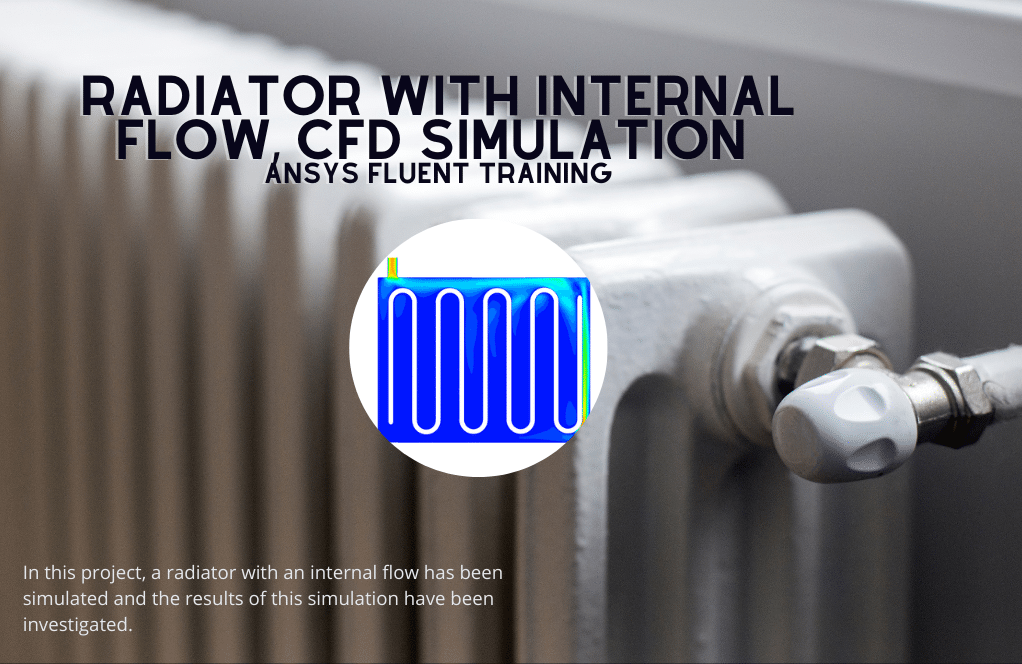
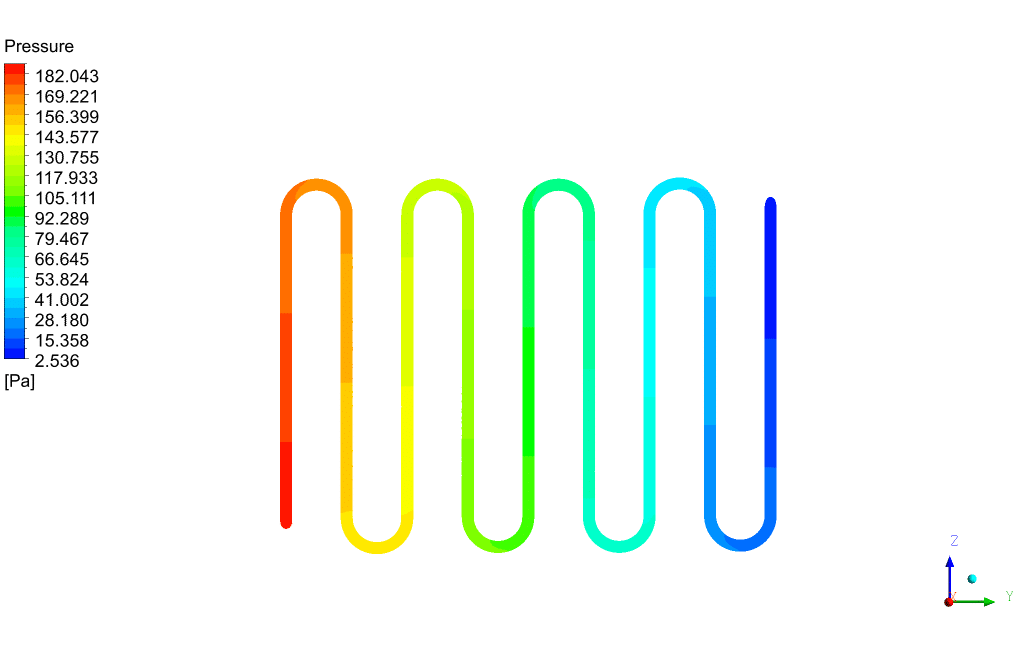
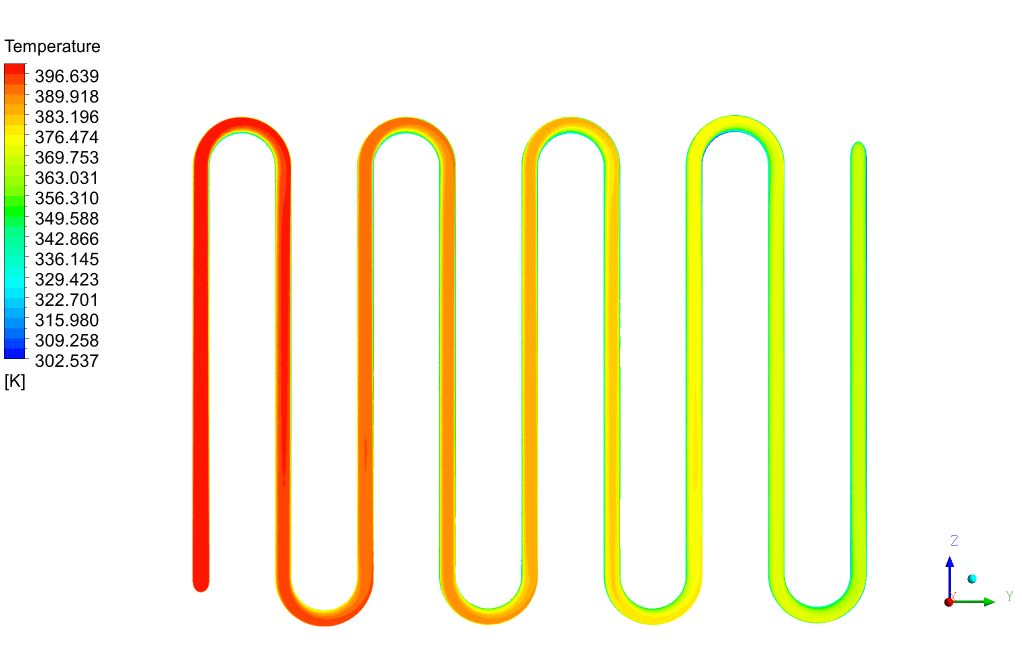
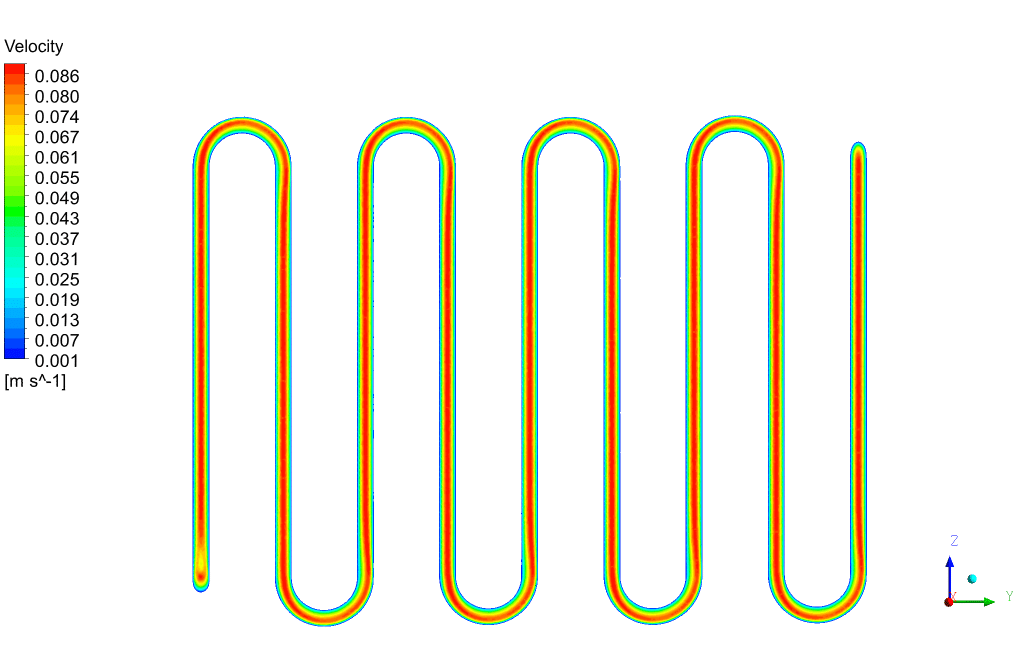
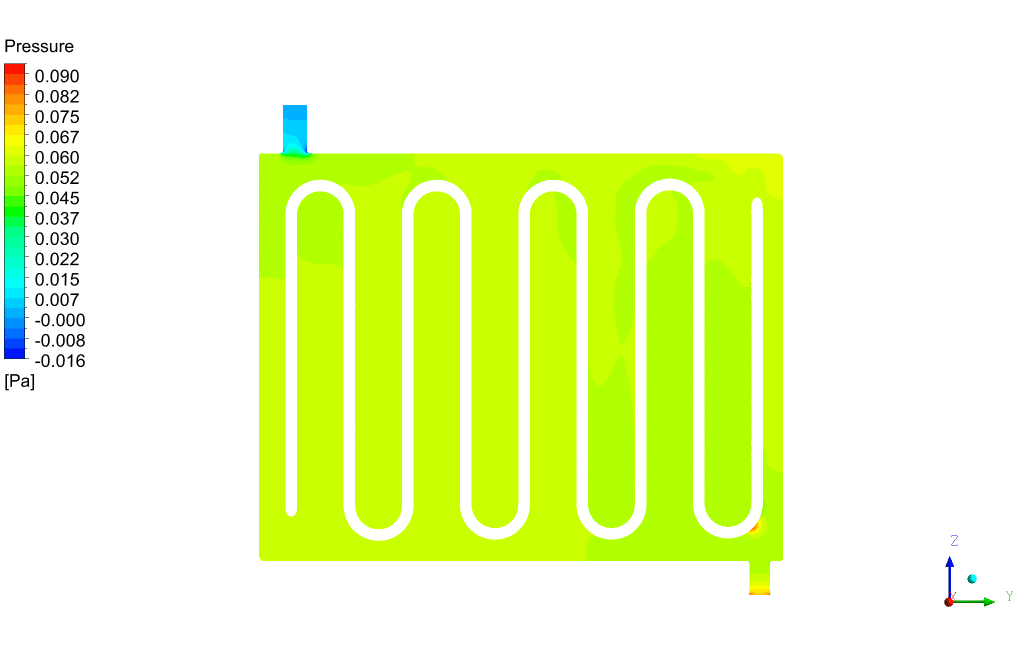
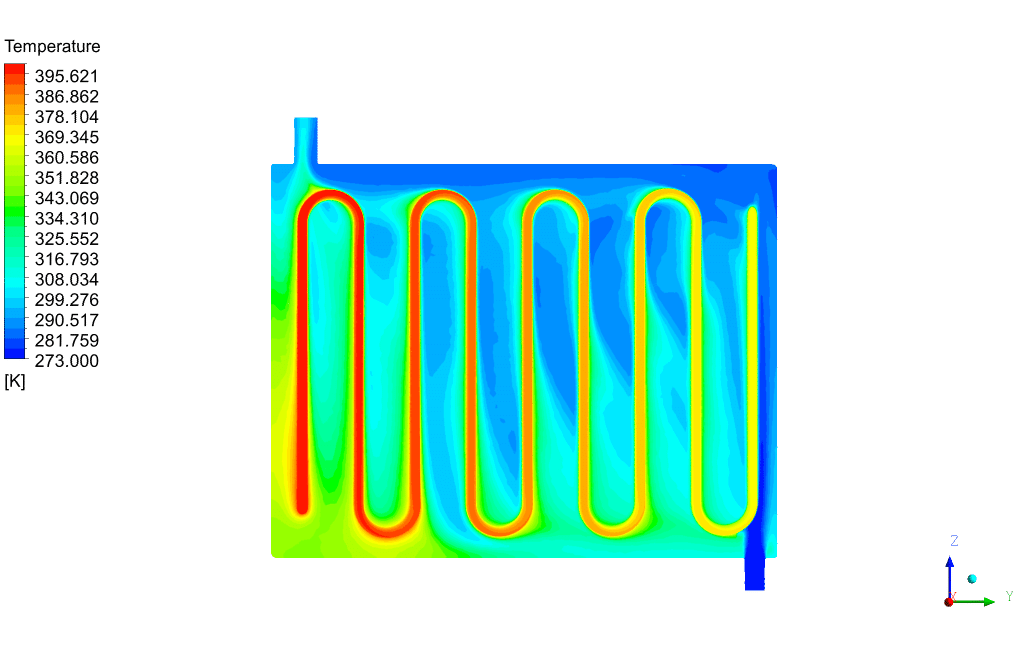
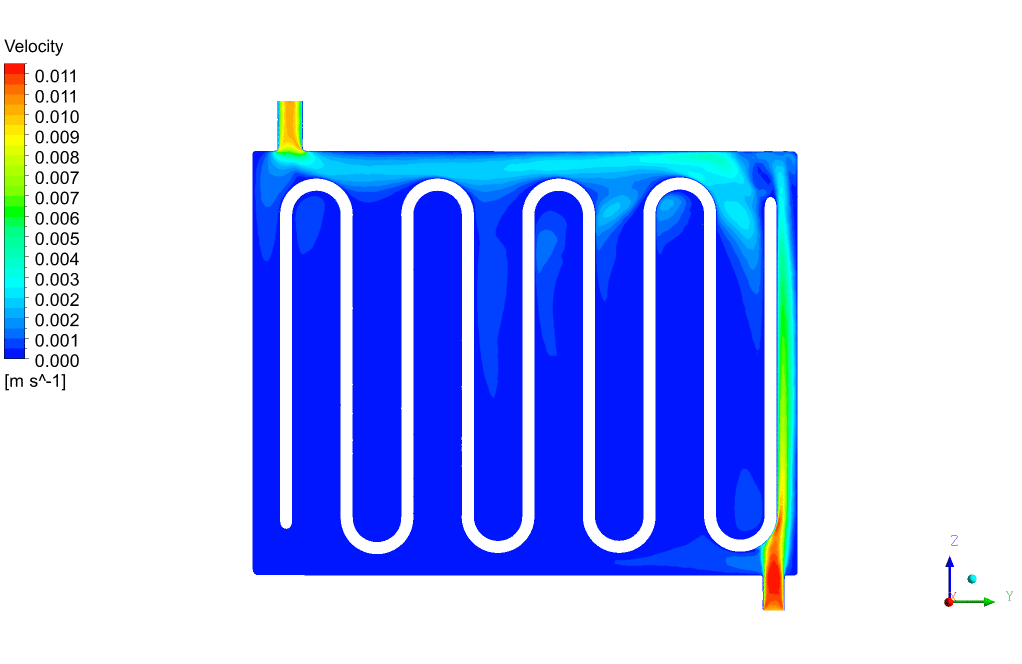
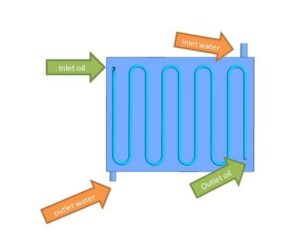
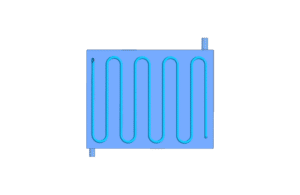
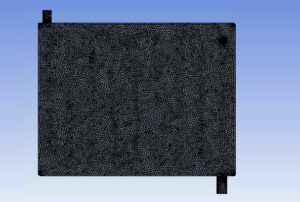
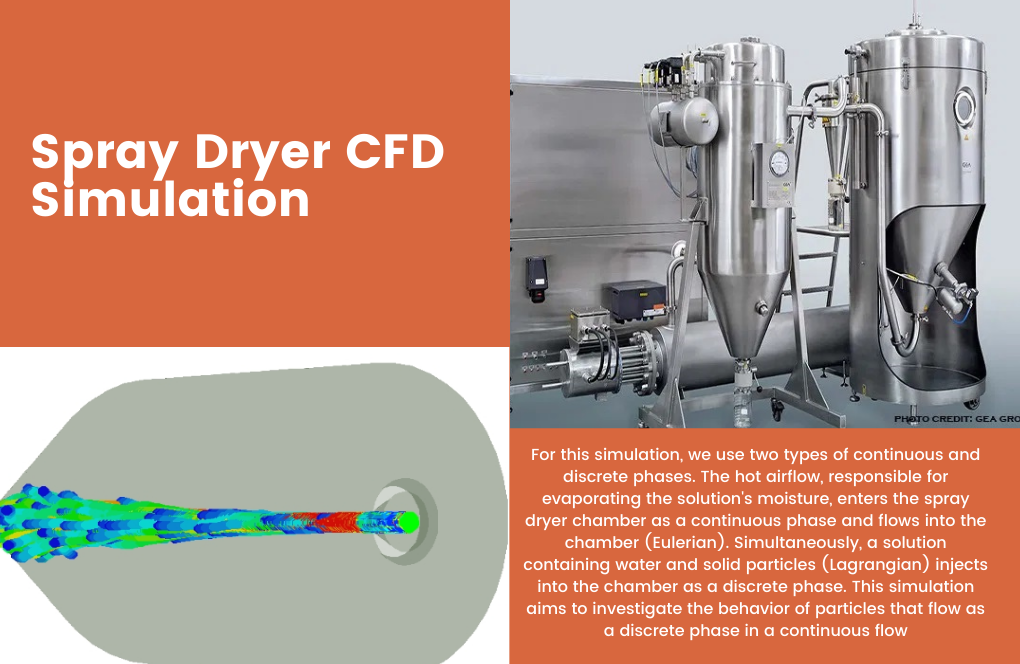

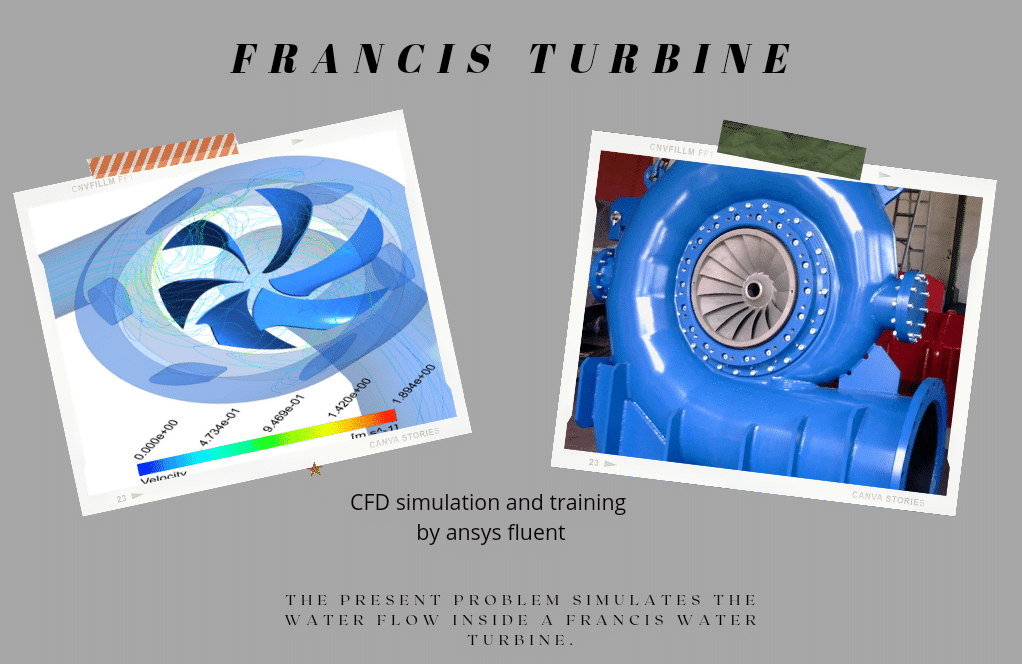

Neva Murray –
The training was comprehensive and detailed. The balance between hot oil cooling efficiency and the effect of water and oil velocities on heat transfer was insightful. Understanding how inlet temperatures of cold water can manage oil cooling was fascinating, resulting in practical knowledge for optimizing radiator performance.
MR CFD Support –
We appreciate your positive feedback on our Radiator considering Internal Flow CFD Simulation training using Ansys Fluent. It’s great to hear the insights on inlet velocities and temperatures provided a clear understanding of optimizing radiator performance. Thank you for taking the time to review our product!
Dr. Willy Dare MD –
I used this simulation training for my project. The explanations of the process were clear, and it helped me understand the thermal exchange inside a radiator. The visuals in the results were particularly impressive. I’ve noted the oil temperature decreased significantly. Great tutorial!
MR CFD Support –
Thank you so much for the positive feedback on our radiator simulation training! We’re thrilled to hear that the explanations and visuals were helpful and that it contributed to your understanding of thermal processes. It’s always rewarding to know that our resources are making a difference. If you encounter any further questions or need additional information for your projects, don’t hesitate to reach out!
Enos Stehr –
Which models are specifically used in the simulation for the radiator’s viscous effects and how do the chosen models affect simulation outcomes?
MR CFD Support –
In the simulation, the realizable k-epsilon model with Menter-Lechner near-wall treatment is used for modeling viscous effects. This model captures the effects of turbulence and its interactions with the boundary layer accurately, which in turn affects heat transfer rates and fluid flow patterns within the radiator, resulting in more precise simulation outcomes.
Mrs. Mireya Koss Sr. –
I was pleasantly surprised by the temperature reduction achieved in the radiator from 400 K to 363 K! It really demonstrates the efficacy of the design. Well done on a successful simulation!
MR CFD Support –
Thank you for your positive feedback! We’re delighted to hear that the simulation results met your expectations and that the performance of the radiator impressed you. If you have any more questions or need further assistance, our team is always here to help!
Ethyl Cassin DDS –
This product review is wonderful! I learned a lot and now I feel confident in simulating internal flow in radiators using Ansys Fluent. Thank you for such a thorough training kit.
MR CFD Support –
Thank you for your kind words! We are thrilled to hear that our training material helped you gain confidence in radiator simulations. If you need further assistance or have more questions in the future, don’t hesitate to reach out. Your success is our top priority!
Hoyt Farrell –
The radiator training was fantastic. I learned so much about setting up and simulating internal flows, especially the cooling process with oil and water interaction. It’s impressive to see the oil temperature being decreased effectively as intended. Great work on making a complex topic understandable!
MR CFD Support –
Thank you for your positive feedback! We’re delighted to hear that you found the internal flow radiator simulation training informative and understandable. It’s always rewarding to know that our clients are successfully applying the knowledge gained from our CFD products. If you have any more questions or need further assistance in future simulations, don’t hesitate to reach out. Thanks again for choosing MR CFD!